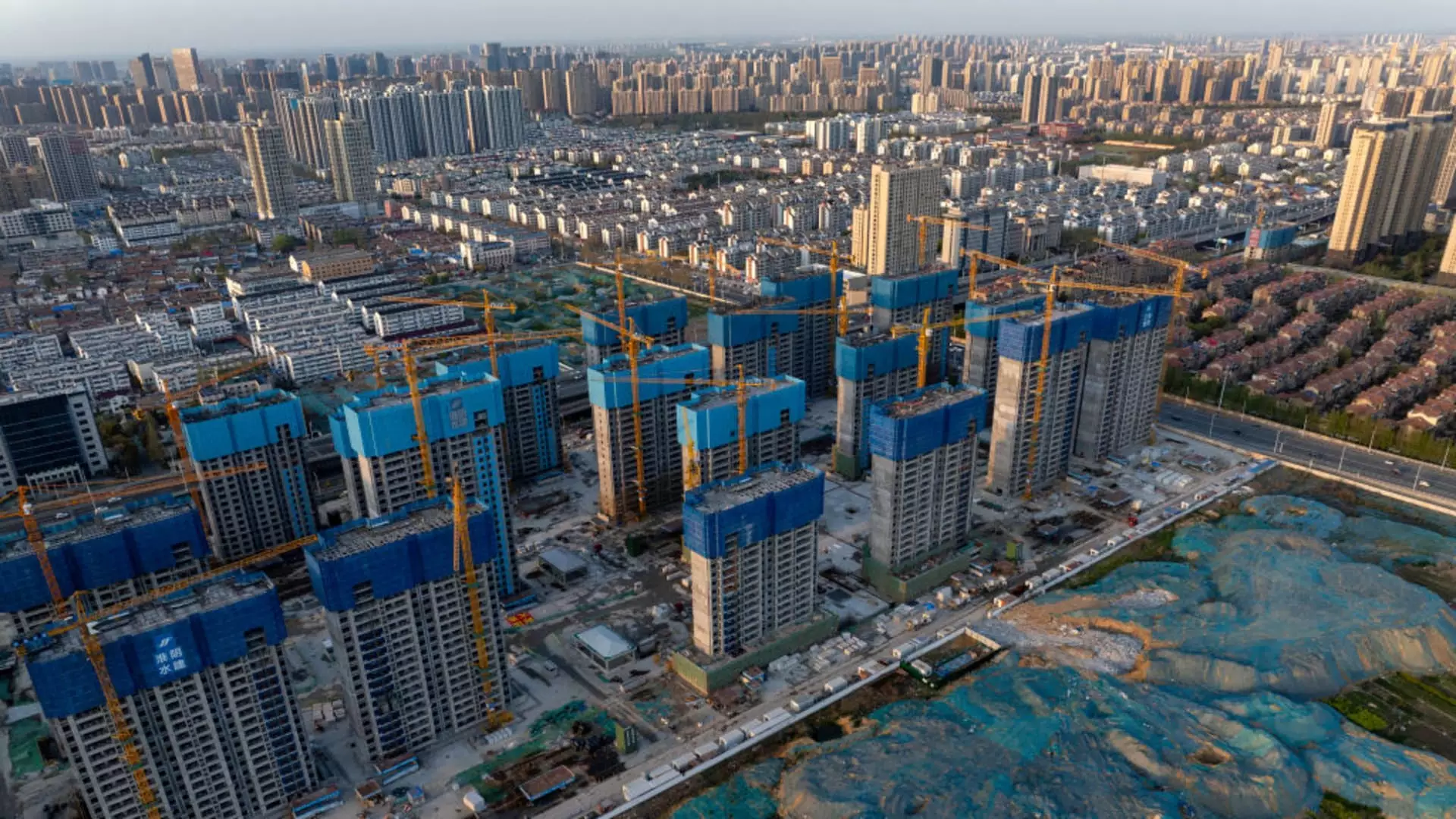In order for economic activity to rebound in China, Richard Koo, chief economist at Nomura Research Institute, emphasized the need for a convincing narrative that home prices are on the rise. This sentiment is crucial for boosting business and consumer confidence, particularly in terms of new loan applications. The current trend of declining home prices, as highlighted by Goldman Sachs’ analysis, paints a worrying picture of a potential “balance sheet recession” similar to Japan’s past economic struggles. The challenge lies in assuring the public that property prices have hit rock bottom and are now poised to climb, thereby encouraging borrowing and investment in the housing market.
Despite the ongoing adjustments in China’s real estate sector, house prices have not dipped as significantly as expected, given the broader slowdown in the property market. Officials have acknowledged this period of “adjustment” while redirecting focus towards new growth sectors such as manufacturing and new energy vehicles. Real estate and its associated industries play a substantial role in China’s economy, making up a substantial portion of the country’s overall GDP. The recent downturn in the property market can be attributed to government actions against excessive debt reliance among developers, coupled with the disruptive effects of the Covid-19 pandemic.
A key divergence between China and Japan, as pointed out by Koo, is the demographic shift towards population decline in China. This demographic trend complicates the narrative of a property market rebound, as a shrinking population reduces the demand for housing. In 2023, China posted a nominal economic growth rate of 5.2%, marking the first year of recovery post-pandemic restrictions. Despite setting a growth target of around 5% for 2024, analysts remain skeptical about achieving such levels without additional stimulus measures. Chinese authorities have been cautious in providing extensive support to the economy, wary of repeating past mistakes in stimulus packages.
Reflecting on China’s previous stimulus endeavors, Koo highlighted the unintended consequences of excessive government intervention in the economy. The 4 trillion yuan stimulus package rolled out in response to the global financial crisis initially faced skepticism and resulted in a significant stock market decline. While the initial stimulus spurred rapid growth, subsequent rounds of intervention led to overheating, speculative activities, and corruption within the economy. The lingering distrust towards large-scale stimulus programs stems from the perceived failures of past initiatives, shaping Beijing’s current reluctance to inject significant funds into the market.
Looking ahead, Koo stressed the importance of measured stimulus efforts to prevent a balance sheet recession in China. While initial support can stimulate economic activity and growth, it is crucial to taper off interventions once growth reaches sustainable levels. Striking a balance between fostering economic expansion and curbing excessive speculation remains a key challenge for Chinese policymakers. By instilling confidence in the property market and implementing targeted stimulus measures, China can navigate the current economic challenges while laying a foundation for long-term stability and growth.

Leave a Reply